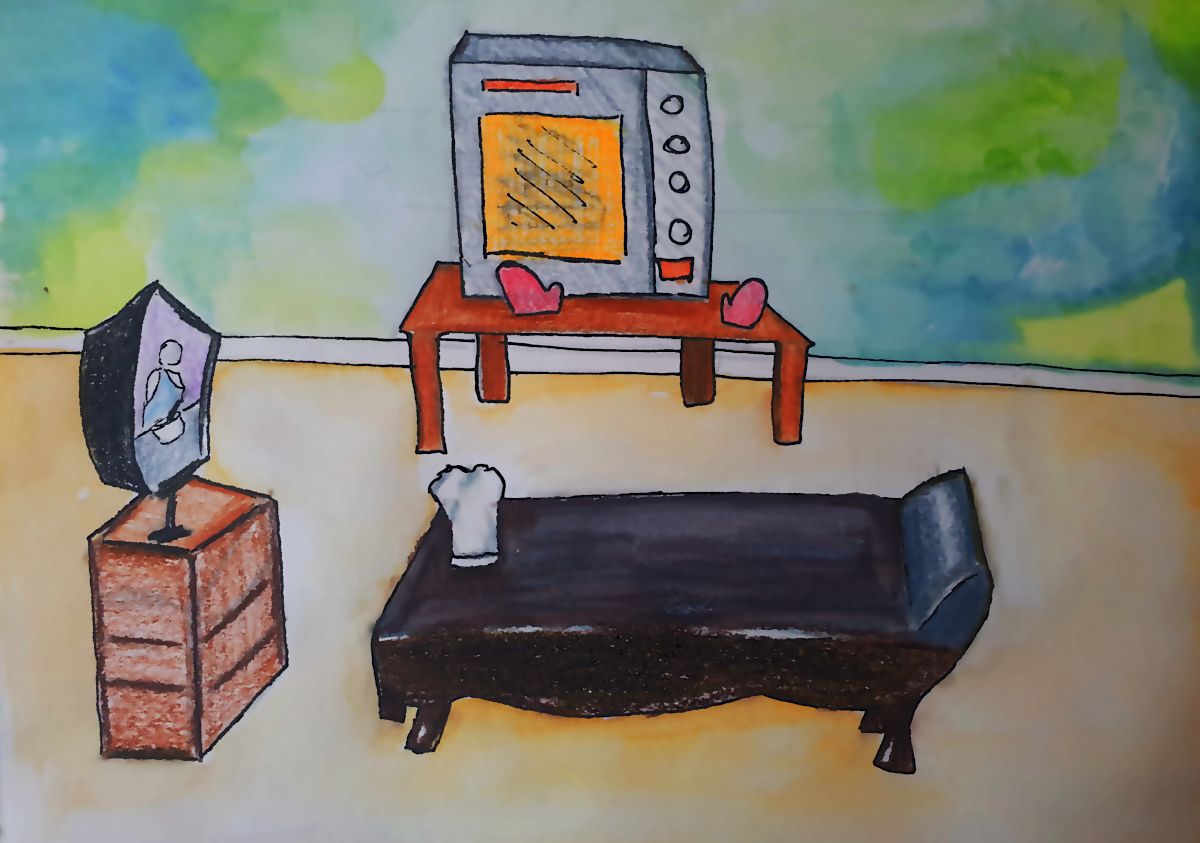Therapeutic Baking
Why do we love baking so much, and how is it able to calm our racing minds?

Why do we love baking so much, and how is it able to calm our racing minds?
Gorgeously decorated cakes, cookies and pastries that have the grandeur of a Parisian patisserie. Colourful bakes that remind us, and the contestants, of grandparents, Christmas, and joyful family traditions. A light, jovial background music raises the heart rate to a delightful trot as the bakers rush to finish their bakes. The aesthetic is as delectable as the bakes when they make their way out of the oven.
There is a competition here, but it is a light-hearted one. It’s not uncommon for bakers to help each other out when they’re crunched for time or they just can’t seem to get that last macaron to stay balanced on top of their cake.
The Great British Bake Off is a show that taps into something fundamentally non-American — a sense of camaraderie over competition, even during a competition. It comes complete with comic relief, from quips aimed at the judges to the hovering (and generally just goofing off) comedians.
This show has it all.
Every season of The Great British Bake Off — known as The Great British Baking Show in the U.S. — is just as sweet as the next.
The show is not just about the easygoing, I’m-happy-even-when-my-custard-hasn’t-set-and-instead-has-spilled-all-over-the-floor sentiment. It’s the baking itself.
Raise your hand if you’ve paused an episode mid-way through so you could get a snack or maybe were even inspired to bake something delicious while watching. If you’re like me, I want to be in the act of baking or eating something baked while I watch — it heightens the experience.
It struck me that there are three steps to baking (or, er, watching baking shows), and hidden in each step is a reason we find baking so therapeutic.
It makes sense. Each treat is displayed first as scribbled imaginings on our screens as if plucked from a children’s book and is accompanied by delicious words like Swiss meringue and Crème Anglaise and Victoria sponge. These visual and aural descriptions are meant to do one thing: tantalise.
Visualisation is a common practice in meditation and in mental health support. You see a picture — either in your mind, or on your phone, or from a TV show like this one — and then you remember that picture as you attempt to create something that looks like it. And in this case, it’s a tool that subconsciously sparks your creative drive.
Even if you’re baking alone in your simple kitchen, without a pale pink Kitchenaid or comic commentary encouraging you along the way, the first thing you start with is what you want to achieve. You’re approaching a task with a vivid picture of your goal in mind.
And, yes, I know what you’re thinking: it almost never turns out exactly like in the picture. But that’s not the point. The point is that your creative mind is triggered, and it’s triggered by something that (theoretically) brings you joy. It’s a win-win, and it’s what makes us crack open that first egg and dream of what it could become.
And then, there’s the baking itself. There’s the kneading, the rolling, the cutting, the shaping, the whisking, the oven temperature, the cooling, the setting, and the piping. It’s a toiling process that takes precision and a certain degree of I-know-what-I’m-doing.
The contestants are working with sugar and eggs and flour and other delicate ingredients we associate with small children and grandmas and joy and love and laughter. So, the toil isn’t so arduous, we think. It’s a nice kind of toil. The kind we’d love to replicate. Let me just hit pause on that real quick and see what I can whip up. Pip pip. Cheerio.
Working with your hands (especially if the task requires little to no thinking) is great therapy. It gives your thinking mind a chance to relax and catch up on rest while your hands and body do the rest.
Following a recipe has this quality. Even if the recipe is in our minds and not one we read, we’re still operating from a place of memory and, therefore, are not required to think our way through baking. And then, using your physical body to create something has even more power to calm our thinking minds.
Mix dry ingredients.
Add two eggs, one at a time.
Bake at 350℉ for 45 minutes.
We trust that the recipe knows what it’s talking about, and so we can simply let our minds go. Research from books like The Breakout Principle by Herbert Benson, M.D. and William Proctor shows us that there’s power in letting our minds break free from thinking sometimes. It can actually help us solve problems faster and truly release us from the harms of stress.
So, yes, give your mind a break and knead that dough until your hands cramp, why don’t you.
And then there’s the final product. As the contestants whip their bakes out of the oven, viewers can all but feel the heat and anxiety.
And the decorations. Wow, the decorations. True, they can be unimpressive, but not always. Sometimes, they’re perfectly asymmetrical and worthy of window drooling outside your favourite bakeshop.
The icing might be royal or merengue or buttercream, and even as you watch steady hands piping pink rosettes to trim the edges (knowing very well this is a show and not happening in your house right now), you can almost taste it.
At home, the results of our baking endeavours are not always successes (especially if you’re me), nor are they particularly immediate. However, when the house starts to smell like freshly baked cookies or the apartment takes on the odour of pumpkin-spiced whatever, something is triggered inside us.
We start to feel anticipation, delight even.
Then, we pop the thing out of the oven, and even if it’s only halfway salvageable, we have created something. We have accomplished our goal. Unless we’re very well practised or super lucky, it probably doesn’t look like the GBBO creations when they come out of the oven (and if it does look like that, what are you sitting around reading this blog for? Bake, I tell you, bake for a living!). But no matter what it looks like, we are instantly gratified that we’ve created something out of seemingly nothing.
It’s an accomplishment, and our brains know we’ve achieved a goal. We can celebrate this mere fact. We have brought a goal we set for ourselves fully to fruition. Though it may be a small win, this accomplishment makes us better prepared to tackle our other goals.
Dreaming, getting our hands dirty, and that elusive-in-modern-life sense of tangible accomplishment — that’s why baking is so therapeutic. So, bring your bakes up to the front of the room and place them on the gingham altar.
And for goodness sake, don’t stop baking. It’s therapy!
